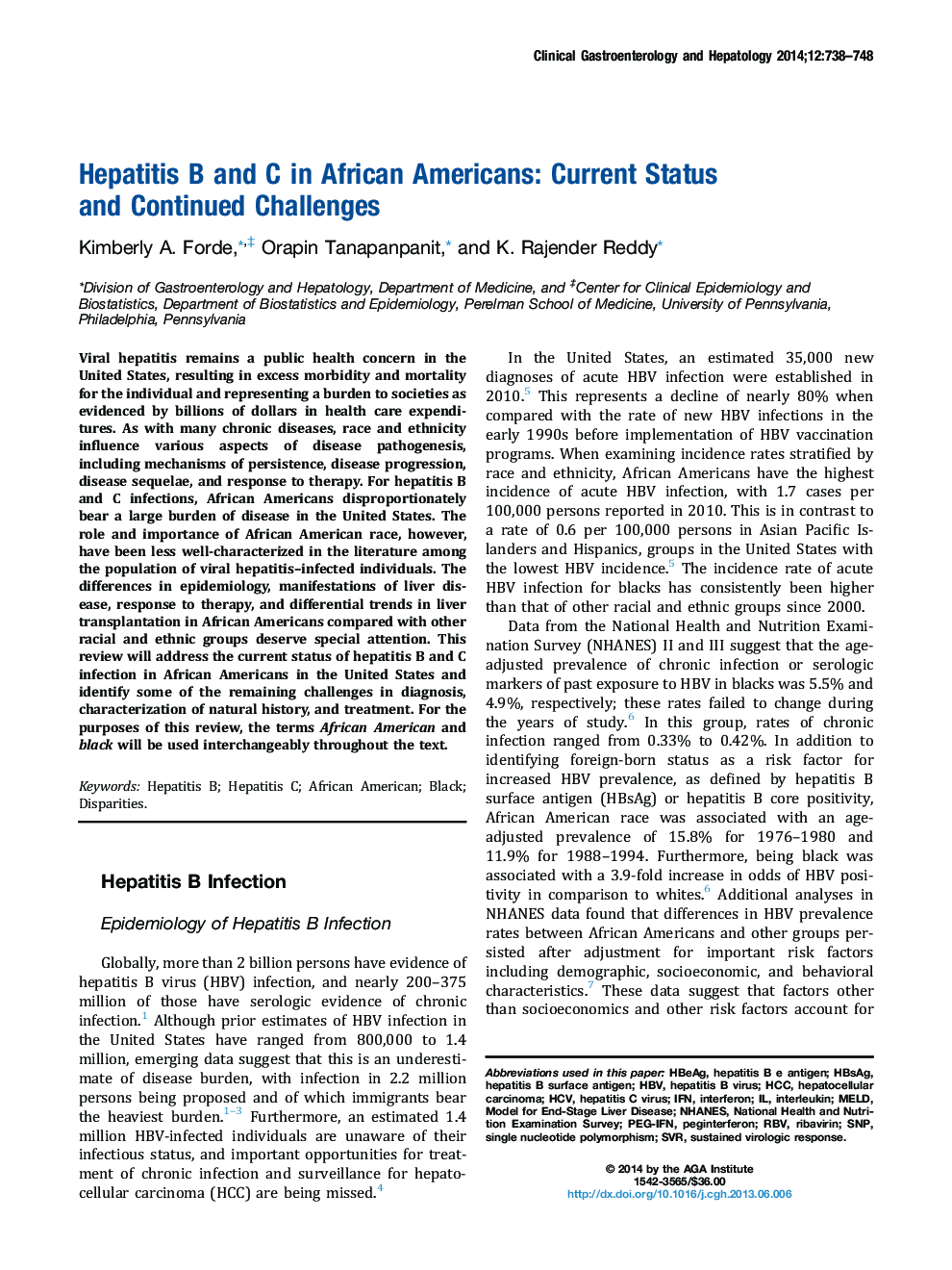| Article ID | Journal | Published Year | Pages | File Type |
|---|---|---|---|---|
| 6091597 | Clinical Gastroenterology and Hepatology | 2014 | 11 Pages |
Abstract
Viral hepatitis remains a public health concern in the United States, resulting in excess morbidity and mortality for the individual and representing a burden to societies as evidenced by billions of dollars in health care expenditures. As with many chronic diseases, race and ethnicity influence various aspects of disease pathogenesis, including mechanisms of persistence, disease progression, disease sequelae, and response to therapy. For hepatitis B and C infections, African Americans disproportionately bear a large burden of disease in the United States. The role and importance of African American race, however, have been less well-characterized in the literature among the population of viral hepatitis-infected individuals. The differences in epidemiology, manifestations of liver disease, response to therapy, and differential trends in liver transplantation in African Americans compared with other racial and ethnic groups deserve special attention. This review will address the current status of hepatitis B and C infection in African Americans in the United States and identify some of the remaining challenges in diagnosis, characterization of natural history, and treatment. For the purposes of this review, the terms African American and black will be used interchangeably throughout the text.
Keywords
RBVSVRPeginterferonPEG-IFNHBsAgHBeAgNHANESHCCAfrican AmericanHepatitis B surface antigeninterferonIFNinterleukinNational Health and Nutrition Examination SurveyDisparitiesRibavirinblackModel for End-Stage Liver DiseaseHepatitis B e antigenHepatitis CHBVHepatitis BHepatitis C virusHCVhepatitis B virusSustained virologic responseSingle nucleotide polymorphismSNPHepatocellular carcinomaMELD
Related Topics
Health Sciences
Medicine and Dentistry
Gastroenterology
Authors
Kimberly A. Forde, Orapin Tanapanpanit, K. Rajender Reddy,
